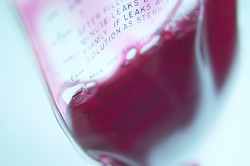|
Is cord blood donation right for you?
Cord blood donations can save lives but the procedure may not be beneficial for your baby. Read to find out why. What is cord blood donation? Donating umbilical cord blood means that immediately after birth, the blood in the baby's umbilical cord is removed, stored in a container and shipped to a bank where it is stored in deep freeze. How is donation different from private cord blood banking? There are two models for storing cord blood: public cord blood banks accept free donations of umbilical cord blood that then anyone can access whereas private cord blood banks charge a lot of money to store cord blood for private use. If you donate your baby's cord blood, the blood sample is owned by the bank, and the blood is screened and listed in a registry so it can be best matched to a recipient. If you bank your baby's cord blood with a private bank, then you continue to own the blood, the sample does not need to pass such stringent tests, and it will be kept for your private use. What does it mean for your baby? At the time of birth, about one third of the baby's blood volume is circulating through the cord and the placenta. If the cord is clamped early (and in many hospitals, this is still the norm), then this blood remains in the cord and the placenta. Unless it is collected for banking, the blood in the cord goes to waste. Whether or not the blood in the cord is collected for donation, what early clamping means for the baby is that the baby is deprived of the blood that was in the placenta and the cord at the time of clamping. Why should parents consider donating umbilical cord blood?A newborn's blood is chock full of stem cells, which are cells that can develop to be any other kind of cells. This ability to change into other cell types is why stem cells are so valuable in treating some illnesses. These so-called pluripotent cells can be transplanted into people suffering from diseases of the blood, bone marrow and certain types of cancer. Who benefits from cord blood donation? The public. When parents donate their baby's cord blood, the blood is then owned by the bank. It is very expensive for banks to process and store cord blood, so public banks' business model is to accept free donations of cord blood from parents, and then sell banked blood through insurance companies. The samples of cord blood can then be used for cord blood transplants for people who suffer from serious illnesses. Who is eligible for donating umbilical cord blood? Not everyone. The number of locations served by public banks is limited, so donating cord blood may not even be an option where you are. Click here to check whether your hospital accepts cord blood donations. Additionally, the mother needs to pass a blood test before donation, and the donated sample must also pass a blood test. Are all cord blood donations used to treat sick people? Not directly. The donated blood must pass certain tests, and it must be a large enough amount to transplant. Smaller amounts of donated cord blood, or samples that did not pass certain tests, may be used for research. Should you donate or bank your baby's cord blood? That is a private decision for each family to make. Click here to read a list of frequently asked questions about cord blood donation and banking so you can make an informed decision. My own thoughts on cord blood donation Honestly, I'm torn. I consider it an important charitable cause to maintain public cord blood banks so that blood containing stem cells is available to sick people in desperate need. And, as I wrote, the newborn's blood is chock full of stem cells that have amazing healing properties. The thing is, it's the newborn's blood that is in the cord and the placenta, and the newborn would benefit greatly from actually being able to collect his or her blood before the cord is clamped. Delayed cord clamping decreases the rate of iron-deficiency anemia in the first year of life, and we can only guess what other benefits it has that the baby gets the full complement of stem cells and blood he or she was meant to have. Obviously, cord blood donation is not a simple choice. Make sure your decision is well-informed.
|